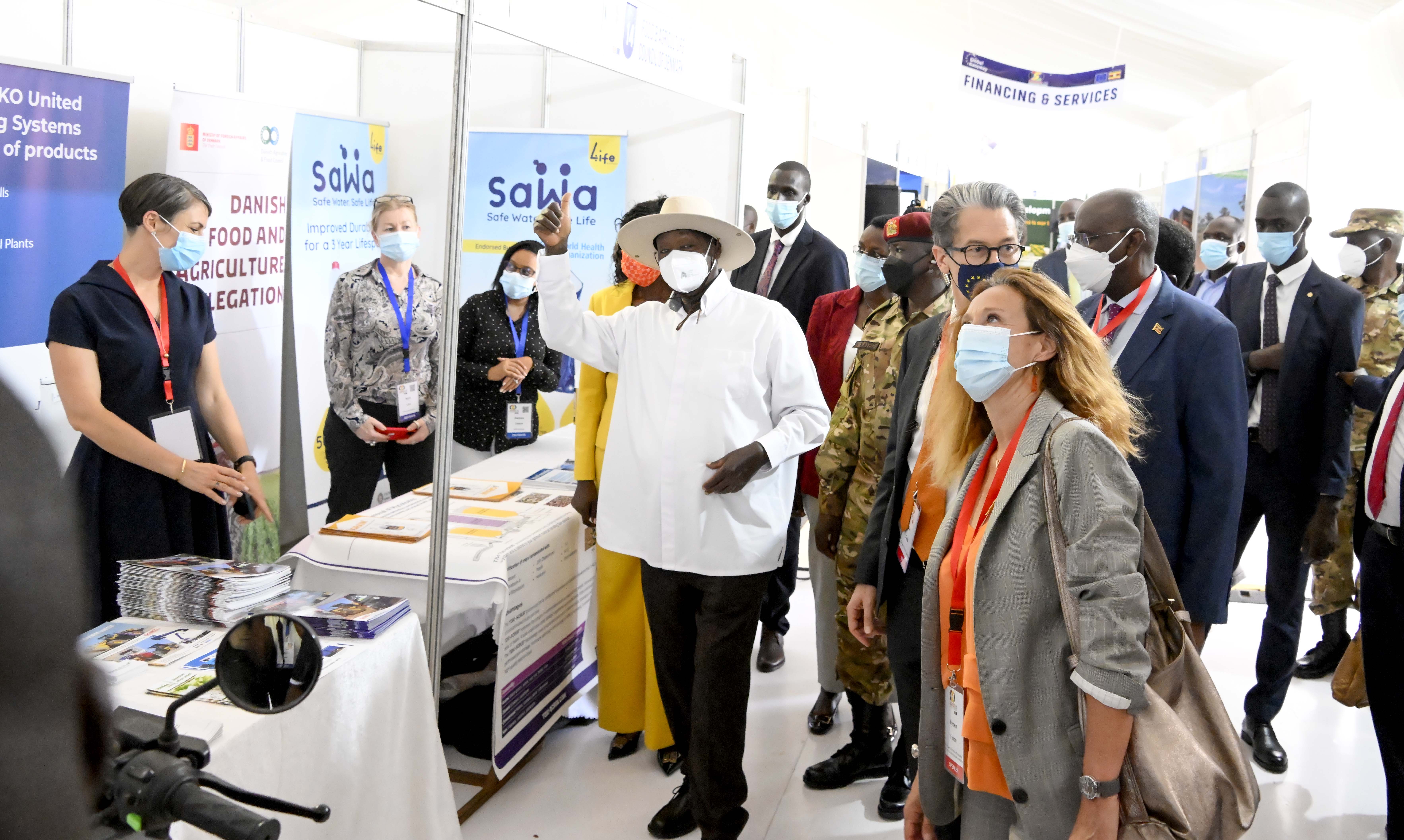The European Union has criticised the visit of President Omar El-Bashir to Uganda, which is a state party to the Rome Statute of the International Criminal Court (ICC).
Keep Reading
- > France, Germany, and EU Lead International Conference on Sudanese Humanitarian Crisis
- > International Trade Centre, EU launch second edition of business acceleration project for Uganda’s film industry
- > EU, UNCDF announce shs48.8bn initiative to promote agribusiness in Uganda
- > Global Gateway: Over €200 million allocated to boost Uganda’s economy ,create new jobs
The Sudanese leader this week concluded a two-day working visit to Uganda at the invitation of his counterpart, President Museveni.
In a statement by Federica Mogherini, High Representative of the EU for Foreign Affairs and Security Policy on behalf of the EU president, the EU lashed out at Uganda.
"I have seen off His Excellency Field Marshall Omar El-Bashir at Entebbe Airport upon conclusion of his two-day official visit to Uganda. I thank him for honouring my invitation. Before his departure, I had the honour of conducting President Bashir around my farm in Kisozi, Gomba District," said Museveni in a message posted on his official Twitter account, @KagutaMuseveni.
The presidency later circulated photos of the two leaders driving to and then relaxing at the cattle farm located some 136 kilometres South-west of Kampala.
It was a visit tightly managed by security, with Bashir's travel plans kept a secret right from the time he arrived until he left the country. Initially, the Ministry of Foreign Affairs had circulated a different itinerary from that shared by the Office of the President. While Ministry officials had said President Bashir would arrive on Sunday, the Presidency said the visit would start on Monday.
Bashir has been wanted since March 4, 2009 when the International Criminal Court issued its first arrest warrant for a sitting president on charges of crimes against humanity, war crimes and genocide in Sudan's Darfur region. Another arrest warrant was issued on July 12, 2010.
The conflict in Darfur which began in 2003 claimed thousands of lives and left millions displaced. The conflict started when rebels of the Sudan Liberation Movement (SLM) and the Justice and Equality Movement (JEM) waged war against the Bashir government accusing it of oppressing Darfur's non-Arab population.
President Bashir faces five counts of crimes against humanity including murder, extermination, forcible transfer, torture and rape.
Resolution 1593
On March 31, 2005 the UN Security Council, acting under Chapter Seven of the UN Charter, referred the situation prevailing in Darfur since July 1, 2002 to the Prosecutor of the International Criminal Court.
The Resolution was adopted by a vote of 11 in favour, none against with Algeria, Brazil, China and the United States abstaining.
The Council further decided that the Government of Sudan and all other parties to the conflict in Darfur would cooperate fully with the Court and Prosecutor, providing them with any necessary assistance.
Bashir has, however, continued to travel freely, as the ICC depends on state parties to effect the arrest. For the second time in just over a year, the Sudan leader was this week in Uganda, a signatory of the Rome Statute, obligated to arrest those wanted by the ICC.
During his inauguration speech on May 12, 2016, President Museveni accused the ICC of being biased, describing it as a useless court. This angered some of the diplomats in attendance who walked out in protest.
In July 2015, the South African government turned down calls to arrest Bashir when he visited the country for an African Union meeting. ICC Judges "strongly criticised South Africa for failing to arrest President Bashir, even rejecting the host country's argument that he was immune from arrest as a head of state. But in the end they neither referred the matter to the ICC State Parties nor to the UN Security Council.
Until President Bashir is arrested and transferred to The Hague, the case will remain in the Pre-Trial stage, as ICC only tries individuals when they are present in the courtroom.


















